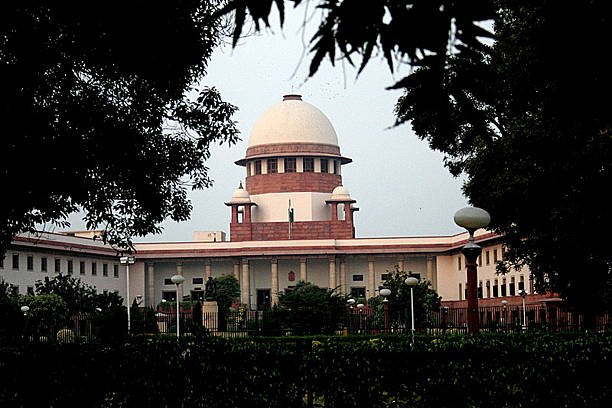


The Supreme Court in the case Chandra Shekhar v UOI, the bench comprising of Chief Justice U.U. Lalit, Justice Ravindra Bhat and Justice Indira Banerjee observed and has refused to entertain a petition seeking to declare the provisions of Places of National Commission for Minorities Act, 1992 being violative of Constitution and to avoid the multiplicity of proceedings.
Justice Bhat while noting that parties were rushing to court after reading something in the newspaper remarked, “Each writ petition filed is a new listing, Imagine the load on the courts”.
Further, the bench enquired why the same matter was coming up again and again. The counsel, Senior Advocate Sonia Mathur, appearing for the petitioner submitted that the parties were different in the present case.
Adding to this, the CJI Lalit remarked, “This is causing the multiplicity of proceedings. Seek impleadment in the pending matter and Withdraw this.”
However, the matter was withdrawn with the liberty to seek impleadment in the pending matters.
The present petition prayed for declaration of the provisions under Sections 2(c) of the Places of National Commission for Minorities Act, 1992 as being violative of and ultra vires the Articles 14, Article 15, Article 21, Article 29 and the Article 30 as well as the principles of secularism. The petition stated that the population of Hindus was merely 1% in Ladakh, 2.75% in Mizoram, 2.77% in Lakshdweep, 4% in Kashmir, 8.74% in Nagaland, 11.52% in Meghalaya, 29% in Arunachal Pradesh, 38.49% in Punjab and 41.29% in Manipur. Further, the Centra Government had not declared them ‘minority’ under Section 2(c) of the National Commission of Minorities Act and as per the plea the Hindus were not protected under Articles 29- Article 30 and could not administer or establish educational institution of their choice.
On the other hand, the plea submitted that the Central Government has recognised Muslims as minorities arbitrarily under S. 2(c) of the National Commission of Minorities Act, despite the fact that Muslims account for 96.58 percent of the population in Lakshdweep, 95 percent in Kashmir, and 46 percent in Ladakh. However, Christians, who make up 88.10 percent of the population in Nagaland, 87.16 percent in Mizoram, and 74.59 percent in Meghalaya, have been classified a minority by the Central Government, allowing them to operate and build their own educational institutions. Subsequently, Sikhs make up 57.69 percent of the population in Punjab and Buddhists make up 50 percent in Ladakh, and they can create and govern educational institutions, wherein, respectively, the Bahaism and Judaism have only 0.1 percent and 0.2 percent of the population.
Further, the petition stated the Central Government while exercising the unbridled powers conferred by Section 2(c) of the National Commission of Minorities Act, arbitrarily notified five communities, namely Muslims, Sikhs, Buddhists, Christians and Parsis as “minority communities” vide Notification dated 23.10.1993, without defining “minority” or framing guidelines for identification at the state level. Thus, Jains were added to the list as the sixth minority in 2014, despite the fact that the three-judge bench of this Hon’ble Court in the Bal Patil Case had emphatically declined to award them “minority” status.